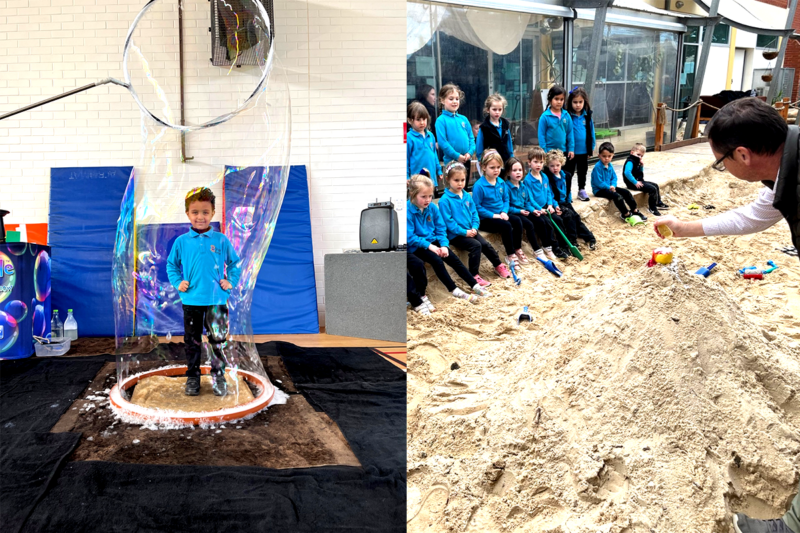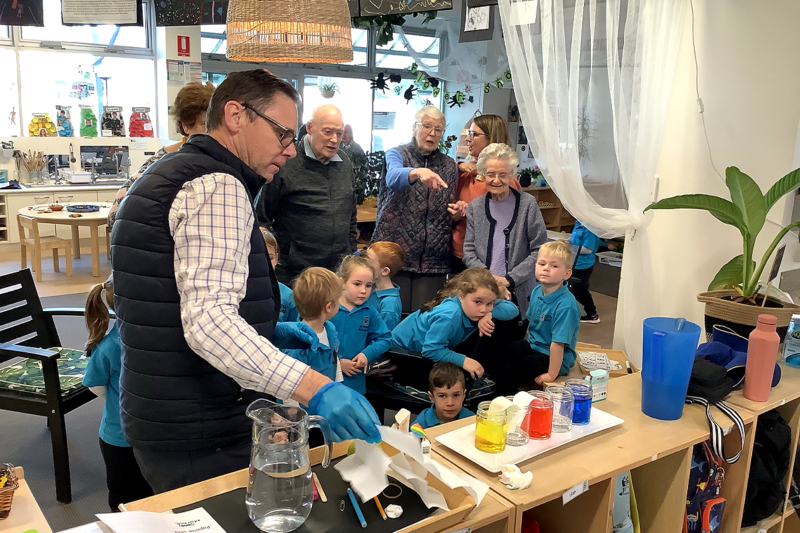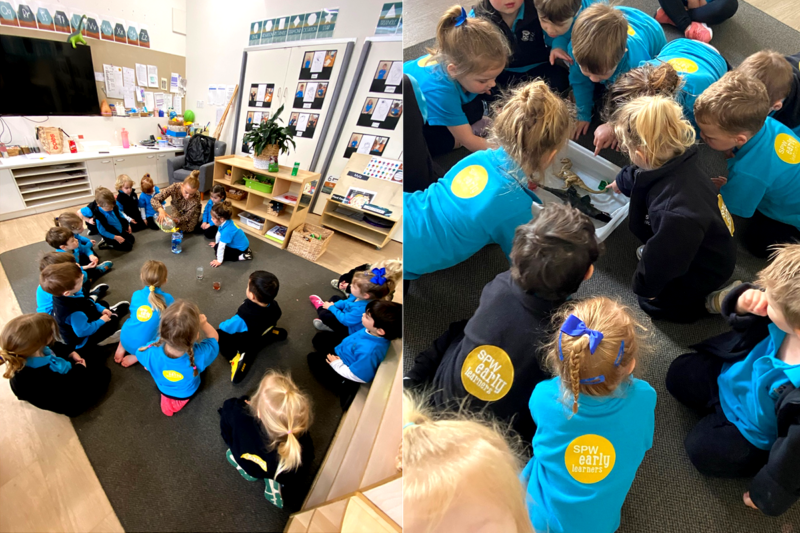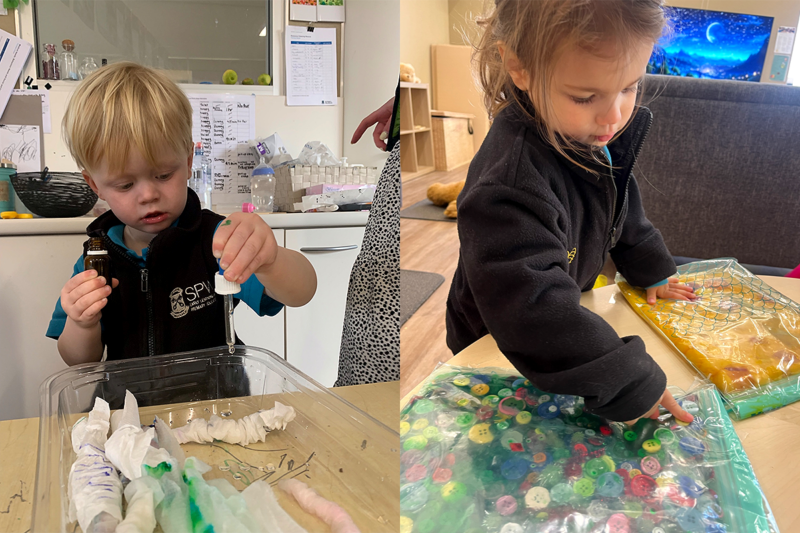2023 National Science Week at St Peter’s Woodlands.
National Science Week is an opportunity to introduce Australia’s youngest minds to scientific thinking, and to set the foundations for a lifetime of discovery and learning.
Science in the Early Years is about active engagement and children love to get involved in scientific discussions, hypothesising and experimenting with various types of experiments to engage their sense of wonder and curiosity and develop their understanding through the unexpected.
SPW’s Early Learning Centre educators planned some exciting experiences that enabled the children to explore based on their learning needs and interests.
Preschool – 4 Year Old Program
Our Preschool children kicked off their National Science Week activities with a visit from Marty McBubble. He did a fantastic show with bubbles, incorporating scientific concepts and vocabulary, such as prediction, transparent, liquid and sphere. The children’s favourite part was being able to be inside a giant bubble!

There were several volcano experiments throughout the week in Nature Play where they built a sandpit mountain and were shown how to make a volcano erupt using bicarb soda, white vinegar and food colouring. Children were engaged in a discussion about what they think a volcano looks like, sounds like and what they think will happen when the vinegar is poured in the hole. The children loved this experiment “The bubbles!” they exclaimed and wanted to keep making the volcano explode over and over again.
Of course, we also had to invite our friends from Kapara Glenelg Residential Care to join us to conduct not one, but two experiments together. They marvelled at the walking rainbow experiment by putting paper towel into six glass jars with water. Putting red, yellow, and blue food colouring into three of the jars and watching closely to see what happened to the water. They also did sinking and floating with a variety of objects. The children had to first make a prediction about if it was going to sink or float. They put an X on their paper for sinking or a tick for floating.

Emerging Learners – 3 Year Old Program
Our Emerging Learners did an experiment with oil and water, and then added a few drops of food colouring to see what happens. The children loved to see the explosion of colour once the food colouring makes it through the oil.
Analysing raisins in lemonade, Skittles in lemonade, oil, food colouring and water. The children were able to make their observations on what they could see.
Like the Preschoolers, the children also participated in a “Sink and Float” experiment. They were surprised by some of the results!

First Steps – 2 Year Old Program
Our youngest ELC children kicked off Science Week by engaging in a science experiment of growing worms to extend on their interest of colours and the worms in the worm farm at Nature Play. First the children used textas to colour their worm and then with help from their educators they rolled up the worm to get ready to make it grow. Using their fine motor skills the children used droppers to drop water onto the worm and make it grow and get bigger! The children absolutely loved this experiment and discovering what would happen.
Another activity for Science Week was exploring our senses using shaving foam and sand. Letting the children run their hands and fingers through the foam first; “it’s like cream, it’s soft”, said Tasman, “smells like a flower”, said Dimitri, “it’s slithery”, said Eva. We then added some sand; “it feels gooey, like shampoo”, said Harriett.

Rounding off Science Week they conducted a milk and food colouring experiment by filling up a bowl with milk and putting drops of food colouring in. They then poured in some dish washing liquid into the milk to make the colours move around. They also created some sensory bags and the children have enjoyed using their fingers to poke, push and discover the different substances inside the bags and how they move and merge together.
“Every brilliant experiment, like every great work of art, starts with an act of imagination.” Jonah Lehrer